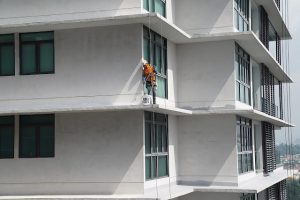As a homeowner, it’s important to maintain the operation of your HVAC system to ensure you can keep the interior of your home comfortable each season. The appliance is one of the most used features on the property because it’s responsible for maintaining the temperature in the building, whether in the middle of a heatwave or there are freezing temperatures outside. If you want to know how to care for the product, there are a few essential tips to follow with this guide.
Table of Contents
Change the Filters
Regarding your HVAC maintenance, changing the filters every two to three months is essential, depending on how much you use the appliance. Changing the filter is crucial for proper airflow and will prevent the parts from working harder than necessary to heat or cool the home in different climates. A dirty air filter can cause you to use more energy than necessary, increasing your electric bill each month.
Most experts suggest cleaning the filter until you replace it again to prevent it from thawing if it gets too dirty, which can eventually lead to water damage. Using a reusable filter can also be cost-effective and requires gently cleaning it every few months.
If you have residents in the home who suffer from allergies, consider investing in a HEPA filter that traps more contaminants and particles to improve the air quality in the home. The filter may cost more but will protect your health long-term.
Schedule an Annual Inspection
Hire a technician to thoroughly inspect the HVAC system once each year to determine if any issues are present. The HVAC Nanaimo professional will diagnose any problems and will perform the necessary repairs to prevent any issues from escalating over time. During the inspection, the technician will also clean the parts to wipe off dirt, grime, and debris accumulated each season.
During the inspection, you can expect the technician to clean the coils, check the fan’s operation, check the refrigerant level, look for leaks in the heat exchanger, and clean the drain lines. Checking the parts to ensure they’re operating will prevent costly energy bills and can extend the lifespan of the components. It would also be best if you know the average price per kwh texas to know what’s best HVAC unit to use.
Remove Debris
It’s also important there are at least two feet of clearance around the unit to prevent any items from having contact with the different parts of the appliances. Remove any debris like twigs, pollen, and leaves from the team to avoid things from affecting the unit’s operation.
Clean the Heat Pump
Cleaning the heat pump or condenser is necessary to prevent the unit from working too hard to run each day. You can avoid damage to internal components in the HVAC system with a thorough cleaning. It’s essential to hose off the fins with water and remove any gunk accumulated in the crevices of the parts.
Proper maintenance also includes cleaning the drain lines to prevent mold and algae from accumulating after removing moisture from the air. You’ll need to remove the outer cover on the air conditioner and use a cloth to clean the drain line thoroughly. Use vinegar and water to remove any mold accumulated throughout the season due to dust and moisture.
Perform the Necessary Repairs
Many homeowners make the mistake of waiting too long to perform repairs on their HVAC system, which can quickly escalate to more severe issues after a few months. Whether you hear rattling or the system fails to cool or heat each room in the home. It’s essential to perform the necessary repairs with the help of a professional technician from Emergency HVAC repair Scottsdale. Any minor issues present may cost money to fix, but they will restore the operation of your appliance and keep it in better shape over the years.
Understanding what is required to perform proper maintenance on your HVAC system can allow you to improve its operation to ensure your home is comfortable year-round without the risk of breakdowns. You can increase the unit’s lifespan and keep your energy usage low to add savings each season.
